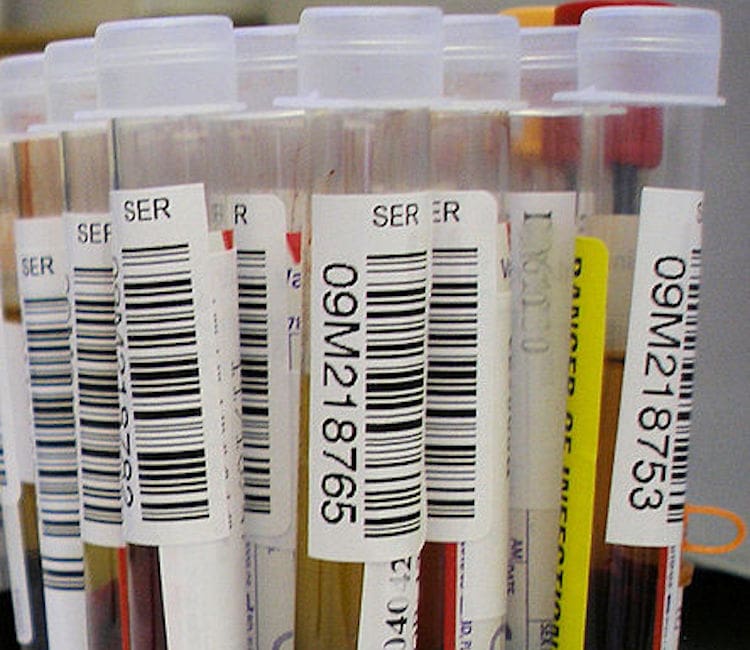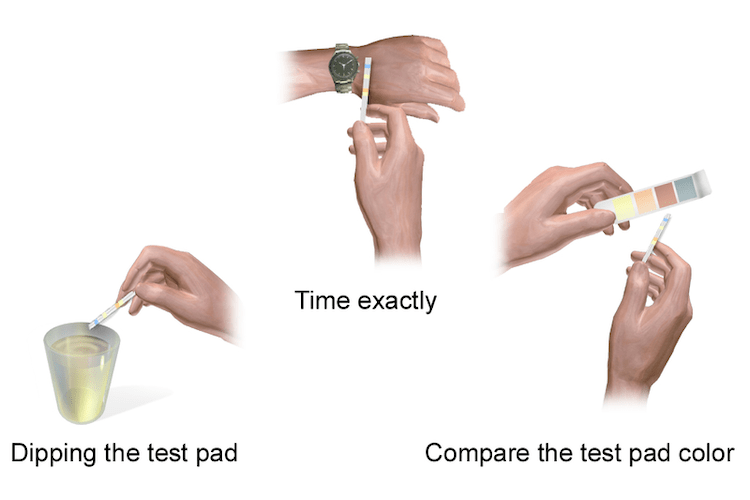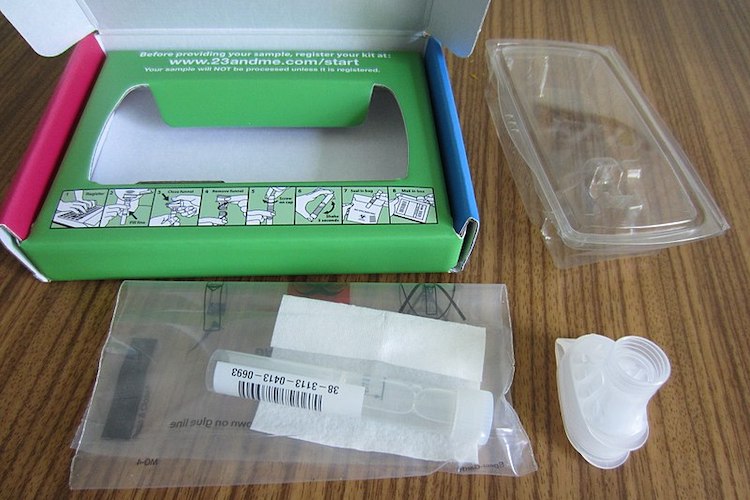These Are The Most Useful Tests To Assess How You’re Aging
If you’ve visited the doctor recently and undergone any testing, you know it can be quite a challenge to view your results and interpret what they mean. A bewildering array of medical terminology, complicated test results, and acronyms only Hippocrates could decipher have left many patients confused and wondering how to take a more proactive stance on their health.
There’s also the issue of communicating with your doctors. While telemedicine and MyChart makes it easier to trade messages back and forth, doctors are still speaking their unique language. Many are hard-pressed to get a more thorough explanation and understanding of what’s really going on inside of them.

Self Quantification: Predicting Future Outcomes
What if you could take matters into your own hands with a few correctly administered tests? What if you knew what tests to ask for in the first place? Better yet, consider the implications of understanding test outcomes, allowing you to make changes based on what’s in your “future.” While many variables contribute to your overall health, knowing what’s going on in your DNA, blood, bones, and bowels will help you make empowered decisions.
Getting down to the nitty-gritty of testing, you’ll need to get comfortable collecting all kinds of samples – from saliva and sweat to urine and feces. These collection efforts are not for the faint of heart, but they’re invaluable. Take a deep breath as you re-evaluate your health goals and decide just how far down the rabbit hole you want to go. Consider the following biomarker tests so that you can safeguard your health and create vibrant wellness…

Blood Biomarkers
Your blood is the life force of your body – it supplies oxygen and vital nutrients to all your body’s tissues and systems of operation. It also acts as a waste disposal system, helping to remove toxic particles by carrying them to the body’s filtration and removal organs. It’s a veritable storehouse of information related to everything from metabolic processes to your future probability of developing certain types of cancer.
Specific blood tests will give you valuable insight into what conditions you must deal with now, what you may be dealing with in the future, and how to treat and even prevent certain diseases from occurring. Consider asking for these tests to get a comprehensive look at how your health is impacting your life.
- RBC Magnesium. This test can predict future outcomes, such as your expected longevity and the rate at which you will experience sarcopenia, or muscle wasting, as you age.
- Estradiol. This test measures the level of estrogen in the body. In the first year of menopause alone, women can lose up to 80 percent of their estrogen, which makes them more susceptible to bone and muscle weakness, not to mention additional oxidative stress. Monitoring estrogen levels as you age becomes an essential part of slowing the effects of aging on the body.
- High-Sensitivity C-Reactive Protein. The CRP level in your body is the level of inflammatory response your body is engaged in at any point in time. Ideally, the CRP level for a healthy individual would be below 3, while anything over 5 is indicative of chronic inflammation caused by another underlying condition, such as arthritis, diabetes, or even cancer. This important biomarker can be monitored regularly to help treat and prevent chronic disease.
- Triglyceride/HDL Ratio. This simple blood test is a significant predictor of longevity, as it measures the levels of good and bad cholesterol in the blood. Additionally, it can provide valuable data on insulin resistance, as well as predict lipoprotein size. All these factors provide information related to the risk of developing heart disease and other cardiovascular conditions.
- Lipid Panel And Omega 3 Fatty Acids. A lipid panel measures fats and fatty substances in the blood, important predictors of heart health. The presence of omega-three and omega-six fatty acids in specific amounts can forecast the development of dementia and certain types of cancers.
- Testosterone. Reports recently released in medical literature link low testosterone levels to increased risk of early mortality. The correlation is due partly to an increased risk for obesity and heart disease, which can lead to other complications.
- Insulin-Like Growth Factor. The IGF-1 is an indicator of one’s future concerning brain health and muscle density. In the cases of low IGF-1 levels, it was found that these individuals were more susceptible to memory loss, dementia, and chronic inflammation that led to disease.
- Insulin Levels. Fasting blood glucose levels and blood glucose stability throughout the day reveal much about how your body processes insulin. Bodies that produce insulin at appropriate times and in correct amounts are thought to have increased longevity. Contrastingly, blood sugar instability (signified by inconsistent glucose levels) are an indicator that inflammation and disease may eventually take hold.
- CBC. A complete blood count is an overview of the different types of red and white blood cells in the body and how efficiently they are circulating. Evaluation of all types of red and white blood cells will give valuable insight into how well different systems of the body are performing.

Hormone Testing
Because hormone levels vary widely throughout the day, one way to get a clear picture of what’s really happening is to study hormone levels and their metabolites, or the rate at which they break down, at various times over 24 hours. The DUTCH urine steroid hormone profile does just that, using samples of dried urine collected at different times to create a clear picture of overall hormone production. The DUTCH test measures several different hormones, and it comes straight to your door with easy-to-follow instructions for collecting urine samples and sending them in for examination.
Food Sensitivities
Testing for food sensitivities is a wise thing to do – you may have inflammatory responses to certain foods and drinks that are harming your health. Some labs go so far as to test food in different forms of preparation (raw, cooked, processed, combined) to offer a comprehensive look at how cooking affects your system as well. At Cyrex labs, the Cyrex Array 10 provides a look at over 180 food antigens, even offering advice on food combinations to help heal your gut and promote better overall health.

Micronutrient Deficiency Test
An ION profile, or micronutrient deficiency test, goes where no standard blood test is able to go. It takes an intimate look at fatty and amino acids, antioxidants, vitamins and minerals, and inflammatory markers that could point to chronic disease down the road. If you experience frequent sleep disturbances, minor aches and pains, and the occasional feeling of malaise, this may be a great place to discover if nutrient deficiency is the cause.
Microbiome Test
Your microbiome – otherwise known as your gut – is comprised of trillions of bacteria and other living organisms. This blend of good and bad bacteria must maintain a delicate balance for you to experience vibrant health. Test your microbiome makeup with Viome, an innovative company specializing in the identification and quantification of all living organisms within your microbiome. Viome will then make diet and lifestyle recommendations that work in harmony with your own unique biochemistry, maximizing good flora and minimizing harmful ones.

Genetic Testing
You’ve probably heard of 23andme, a service which offers information about your ancestry and unique biochemical makeup. One of the issues that needs to be ironed out with this service is their inability to release all your health information to you. Assistance is required from other companies like Strategene and DNAFit; they allow you to upload your results from 23andme for a more comprehensive look at your genetic profile. Genetic testing can give you valuable insight – not only into who your ancestors were, but what predispositions they may have passed on to you.

Testing For Blood Glucose And Ketones
Few reports can be as impactful for you and your long-term health as your blood glucose and ketone levels. Maintaining healthy glucose levels and monitoring the ketones in your blood and urine are key factors in safeguarding almost every system in your body. To track glucose efficiently, it’s advisable to wear a CGM, or continuous glucose monitor, to monitor what your nutritional choices are doing for you.
Ketones are essentially a measure of how your body metabolizes fat for energy. In the case of someone who has blood glucose issues, such as a type 1 or type 2 diabetic, the level of ketones in the blood and urine must be monitored carefully. Diabetics are at risk for a condition called diabetic ketoacidosis, a toxic buildup of ketones in the blood that could have dire health consequences. If you have a history of cardiovascular disease, diabetes, or blood glucose instability in your family, you’ll want to consider having these tests performed at least once a year for peace of mind.
Stress Testing
Stress can cause damage to the body, and there’s no way to avoid it completely. Knowing what your body can handle is vital to reduce the effects of physical, mental, and emotional stress. A truly unique innovation called the Oura ring takes into account several factors when giving you a daily readiness score. Your readiness score is described as the level of activity and daily stressors you can handle with relative ease. Some days, you’ll be able to take on the world; others, your most significant accomplishment may be getting out of bed to get a cup of coffee. Learn to accept your unique biorhythms and ride the wave, taking time to rest and recharge when needed. You can conquer the world another day.
Sleep Tracking
Does anyone know what the quality of their sleep is truly like? Wearing a sleep tracker gives you valuable data on:
- Total sleep hours
- Sleep efficiency and disturbances
- REM sleep and deep sleep time
- The time it takes you to fall asleep
Knowing this information will allow you to establish healthier sleep patterns and get the restorative, restful sleep you need for good health.

Just Breathe
If all this testing makes you feel like running for the hills, consider prioritizing those tests that will help you get to the bottom of pre-existing conditions. Start with one or two tests, then expand your repertoire to include more comprehensive testing. The more you know about your body, the more proactive measures you can take to change your course or improve how you look and feel. Take decisive action to find out all you can about your current state of health, and then begin to make changes and obtain the vibrant level of health you deserve.
